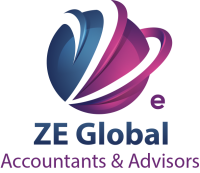The tax system in Singapore is on territorial basis, which means that companies are subject to corporate income tax rate of 17% on income earned and received in Singapore. Singapore only taxes income that is of foreign origin when it is received in Singapore.

Year of Assessment (“YA”)
The year in which income tax is calculated and charged is referred to as YA. Singapore taxes income based on the preceding year basis. 2022 income is subject to tax in YA2023. The income from 1 January 2022 to 31 December 2022 of a company whose financial year ends in December is assessed in YA2023. The deadline for filing the YA2023 tax return is 30 November 2023.
Authorise Users To File Corporate Tax Return
Companies who are e-Filing its tax return for the first time or have changed the person responsible for filing the tax returns are required to be authorised under CorpPass by the companies. If the tax return is filed by a third party, then they must be authorised in CorpPass to act for the companies.

E-file company’s Corporate Tax Return
Companies are required to file their corporate tax return via mytax.iras.gov.sg. The authorise personnel can use the CorpPass to log into myTax Portal and file their company’s corporate tax return.
Due date
The deadline for filing corporation tax returns (Form C-S, Form C-S (Lite), and Form C) is 30 Nov.

Filing of Estimated Chargeable Income (“ECI”)
ECI must be filed by companies within three months after the end of their financial year, unless
- The company qualifies for the ECI filing waiver; or
- The company is specifically not required to file ECI.
When both of the following conditions are met, companies are eligible for the ECI filing waiver in any YA
- Annual revenue is $$5 million or below for the financial year; and
- ECI is NIL for the YA. The ECI should be the amount before subtracting the exempt amount under the tax exemption scheme for new start-up companies or the partial tax exemption.
Filing of Corporate Tax Return
The Company may file its tax return using one of three different forms, namely Form C-S, Form C-S (Lite), or Form C.
Form C-S is for companies that
- Are incorporated in Singapore
- Have an annual revenue of S$5 million or below
- Derive income taxable at the prevailing Corporate Income Tax rate of 17%; and
- Are not claiming the following
- Carry-back of Current Year Capital Allowances/ Losses
- Group Relief
- Investment Allowance
- Foreign Tax Credit and Tax Deducted at Source

Form C-S (Lite) is for companies that qualify to submit Form C-S with yearly revenue of S$200,000 or less.
Companies who are not eligible to file Form C-S or Form C-S (Lite) should use Form C. Form C must be filed together with financial statements, tax computations, and supporting schedules.

Tax residency of the company
The tax residency of a company is determined by where it is controlled and managed under Singapore tax legislation. A company’s residency status might change from year to year.
Making decisions about strategic issues, such as those pertaining to the company’s policy and strategy, is referred to as “control and management.” It is a matter of fact where a company’s control and management is exercised.
Typically, the location of the Board of Directors meetings, when strategic decisions are taken, defines where control and management are exercised. Holding Board of Directors meetings in Singapore may not be adequate in some circumstances, and IRAS will evaluate all facts presented by the company to assess if control and management of the business is truly exercised in Singapore.
Some instances in which a company's control and management may not be considered exerted in Singapore include
- There is no board of directors meeting held in Singapore. Instead, the directors’ resolutions are merely passed by circulation
- The local director is a nominee director while the rest of the directors are based outside Singapore
- No strategic decisions are made by the local director in Singapore
- No key employees are based in Singapore
A company’s place of incorporation is not always an indicative of its tax residency.
While tax resident and non-resident corporations are normally taxed in the same manner, tax resident companies enjoy various advantages, including
- Exemption or reduction in tax imposed on specified foreign income that is derived in a jurisdiction that has an Avoidance of Double Taxation Agreement (“DTA”) with Singapore
- Tax exemption on specified foreign income such as foreign-sourced dividends, foreign branch profits, and foreign-sourced service income under Section 13(8) of the Income Tax Act 1947
- Foreign tax credit for the taxes paid in the foreign jurisdiction against the Singapore tax payable on the same income
- Tax exemption for new start-up companies
Records keeping requirements
Companies are required to keep their accounting records and supporting documents for 5 years from the relevant YA.
Failure to do so could result in penalties and/or the disallowance of claimed expenses.

